The saga of the CRM elections continues with two groups claiming leadership of the organization that regulates mezcal. One group is headed by Juanito Martinez Santiago who was elected by a group of delegates and is perceived as a leader who will continue to grow the category in the current manner. The other is led by Abelino Cohetero Villegas who was elected by more than 500 producers and is perceived to be an agent for change to the current CRM structure and advocate for small producers. It has been a few weeks since we last reported on the CRM elections. To recap:
- On May 8th, a group of 30 delegates from the nine states included in the DO for mezcal met and voted on changes to the CRM charter and set an election for a new president.
- On May 15th, there was a general assembly held in San Dionisio Ocotepec, Oaxaca with more than 500 producers that elected Abelino Cohetero Villegas as president of the CRM, a move which was declared invalid but the leadership of the CRM.
- At the May 25th assembly in Mexico City, Dr. Jorge Vera García was elected the new president of the CRM by the 30 delegates present. His first decree as the new president? He called for new elections within 90 days with a full assembly, and then resigned. Juanito Martinez Santiago replaced him as president.
CRM elections have a long history of being bare knuckles battles and, as mezcal’s star has risen so has the amount of money involved which may make this year’s election the most brutal yet. Each side has been on a PR blitz, with the CRM using everything in its power to throw shade at Abelino and his supporters. Without doubt, the most shocking revelations were a series of audio tapes of alleged conversations between Abelino and others threatening violence and extortion against the families of the opposing group, as well as alleged falsified signatures for the election. Obviously it was no coincidence that the recordings were released when they were. The implications about the sophisticated level of surveillance aimed at an election for a simple regulatory body are enormous. That coupled with the existence of technology that facilitates the creation of deep fakes and a general atmosphere of distrust has people questioning the validity of these recordings.
Despite the release of the recordings, in a second assembly gathering this past Saturday morning, a group of nearly 400 producers affirmed their vote for Abelino which reveals the depth of support for him among producers, particularly smaller ones who have felt that their interests have not been supported by the CRM under the leadership of Hipocrates Nolasco Cancino. Several producers and brands we have spoken with over the years have expressed growing concern with the concentration of power at the CRM and the perception of a more quid pro quo form of business. For many, the final straw was the delegate structure used in the initial gathering of the CRM on May 8th when changes to the organization’s charter were voted on and then again on May 25th when the elections were held. The delegates represent their respective regions and were selected in 2019 at a general assembly by producers from those respective regions.
It is unlikely that the two groups will come to any resolution and equally likely that final decisions about leadership will come from the federal government, be it the Secretaria de Economia or the court system. This decision could come as soon as next week.
In the meantime, who is certifying mezcal?
According to producers, the CRM group headed by Juanito continues to certify mezcal, albeit very slowly. Producers who support Abelino are fearful of retribution and several have indicated that their mezcal is not getting certified or are not able to get the export paperwork that is necessary to export mezcal. While the group headed by Abelino is trying to certify mezcal, they are challenged as they do not have many resources, especially financing, cars, computers, and the all important holograms. This could cause shipment delays and some shortages on the shelves here in the US just as prime markets like New York and California are fully reopening. As one producer we spoke with said, they feel like a child of divorced parents, trying to navigate working with both entities to ensure they can get their mezcal to market.
The result of all of this could be producers deciding to work with another certifier like CIDAM. Several people have said that having additional certifiers will actually be good for the CRM, as the competition would push the organization to work better, and more fairly. Other producers may decide to forego the certification altogether. The market for uncertified destilados de agave or agave spirits has grown dramatically in recent years and we have spoken to a few brands who are exploring this path as option. They have even prepared different labels so that they are ready for whichever path will allow them to keep their bottles on shelves.
What does it all mean?
Short answer, “Who knows?” There are so many layers here that range from the apparently simple “who controls mezcal?” to the impact of the June 6th national and local elections which are still rippling across the country. Like the US, Mexico is dealing with a very divided electorate, and the current situation with mezcal has been swept into this. It is impossible to look at what’s happening in the battle over control of the CRM without understanding the larger politics, and history, at play. The CRM has long been a lightning rod when it comes to any discussion of how mezcal is regulated, and as the category has grown, so has the ire of producers and brands alike over how certification has been administered and how mezcal has been marketed. The optics of the recent drama are terrible and only reaffirm perceptions of the CRM as a corrupt and completely dysfunctional entity that must be fully overhauled. How that would happen, and who would be leading the charge remains up in the air.

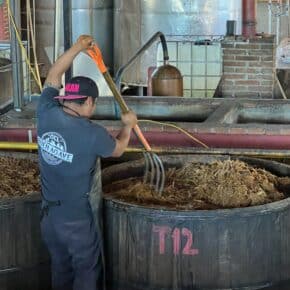

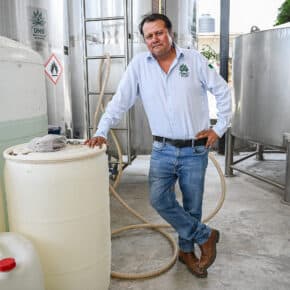
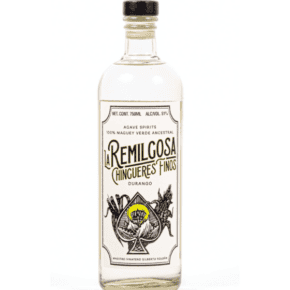
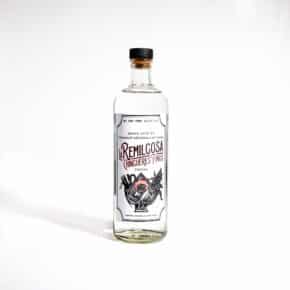
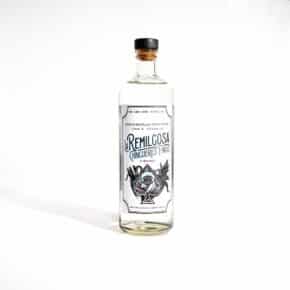






Leave a Comment